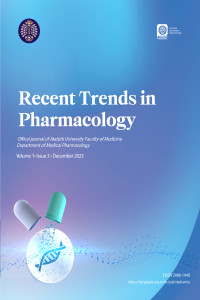Abstract
References
- Al-Regaiey, K.A., et al. (2022). Relationship of Plasma Gremlin 1 Levels with Body Adiposity and Glycemic Control in Saudi Female Type 2 Diabetes Patients. Diabetes Metab Syndr Obes. 2022;15:3429-3436. Published 2022 Nov 3. Doi: 10.2147/DMSO.S372146
- Baboota, R.K., et al. (2022). BMP4 and Gremlin 1 regulate hepatic cell senescence during clinical progression of NAFLD/NASH. Nat Metab. 2022;4(8):1007-1021. Doi: 10.1038/s42255-022-00620-x
- Chatterjee, M., et al. (2017). Platelets as a novel source of Gremlin–1: Implications for Thromboinflammation. Thromb Haemost. 2017 Jan 26;117(2):311-324. Doi: 10.1160/TH16-08-0665.
- Feske, S.K. (2021). Ischemic Stroke. Am J Med. 2021 Dec;134(12):1457-1464. Doi: 10.1016/j.amjmed.2021.07.027.
- Forlivesi, S., et al. (2021). Obesity paradox and stroke: a narrative review. Eat Weight Disord. 2021;26(2):417-423. Doi: 10.1007/s40519-020-00876-w
- Grillo, E., et al. (2023). Role of Gremlin–1 in the pathophysiology of the adipose tissues. Cytokine Growth Factor Rev. 2023 Feb;69:51-60. Doi: 10.1016/j.cytogfr.2022.09.004.
- Guzik, A., & Bushnell, C. (2017). Stroke Epidemiology and Risk Factor Management. Continuum (Minneap Minn). 2017 Feb;23(1, Cerebrovascular Disease):15-39. Doi: 10.1212/CON.0000000000000416.
- Ichinose, M., et al. (2021). The BMP antagonist gremlin 1 contributes to the development of cortical excitatory neurons, motor balance and fear responses. Development. 2021 Jul 15;148(14):dev195883. Doi: 10.1242/dev.195883.
- Müller, I.I., et al. (2021). Protective role of Gremlin–1 in myocardial function. Eur J Clin Invest. 2021 Jul;51(7):e13539. Doi: 10.1111/eci.13539.
- Phani, S., et al. (2013). Gremlin is a novel VTA derived neuroprotective factor for dopamine neurons. Brain Res. 2013 Mar 15;1500:88-98. Doi: 10.1016/j.brainres.2013.01.017.
- WHO (World Health Organization). (2023). Stroke, Cerebrovascular Accident. [Internet]. Available at: https://www.emro.who.int/health-topics/stroke-cerebrovascular-accident/index.html Last Accessed: 01/11/2023.
Abstract
Objective: Obesity is known to be one of the major risk factors for ischemic stroke. Unexpectedly, there are some studies showing better outcomes in obese stroke patients. Gremlin–1, a protein that inhibits adipogenesis and activates angiogenesis, may be the real biomarker of interest to identify this dilemma. This study was the first to investigate serum Gremlin–1 levels in ischemic stroke patients.
Method: In this cross-sectional descriptive study, patients diagnosed with ischemic stroke by a specialist neurologist and healthy participants as the control group were included. Serum Gremlin–1 levels were measured by the ELISA method and compared statistically.
Results: A total of 87 participants, 49 ischemic stroke patients and 38 controls, were included in the study. The mean age of the stroke patients was 72.1 ± 13.0 years, while the mean age of the control group was 56.9 ± 15.1 years and there was a statistical difference (p<0.001). Stroke patients were mostly female (n=27; 55.1%), while the control group was mostly male (n=21; 55.3%), but not statistically different (p=0.338). Serum Gremlin–1 levels were 0.672 ± 0.461 ng/mL in stroke patients and 0.762 ± 0.561 ng/mL in the control group. No significant difference was found when compared statistically (p=0.590).
Conclusion: Our study is the first to have a look at Gremlin–1 levels in ischemic stroke patients. Gremlin–1 levels were lower in stroke patients, but no significance was found. Further studies are needed in large study groups with time-dependent changes in Gremlin–1 levels.
Keywords
References
- Al-Regaiey, K.A., et al. (2022). Relationship of Plasma Gremlin 1 Levels with Body Adiposity and Glycemic Control in Saudi Female Type 2 Diabetes Patients. Diabetes Metab Syndr Obes. 2022;15:3429-3436. Published 2022 Nov 3. Doi: 10.2147/DMSO.S372146
- Baboota, R.K., et al. (2022). BMP4 and Gremlin 1 regulate hepatic cell senescence during clinical progression of NAFLD/NASH. Nat Metab. 2022;4(8):1007-1021. Doi: 10.1038/s42255-022-00620-x
- Chatterjee, M., et al. (2017). Platelets as a novel source of Gremlin–1: Implications for Thromboinflammation. Thromb Haemost. 2017 Jan 26;117(2):311-324. Doi: 10.1160/TH16-08-0665.
- Feske, S.K. (2021). Ischemic Stroke. Am J Med. 2021 Dec;134(12):1457-1464. Doi: 10.1016/j.amjmed.2021.07.027.
- Forlivesi, S., et al. (2021). Obesity paradox and stroke: a narrative review. Eat Weight Disord. 2021;26(2):417-423. Doi: 10.1007/s40519-020-00876-w
- Grillo, E., et al. (2023). Role of Gremlin–1 in the pathophysiology of the adipose tissues. Cytokine Growth Factor Rev. 2023 Feb;69:51-60. Doi: 10.1016/j.cytogfr.2022.09.004.
- Guzik, A., & Bushnell, C. (2017). Stroke Epidemiology and Risk Factor Management. Continuum (Minneap Minn). 2017 Feb;23(1, Cerebrovascular Disease):15-39. Doi: 10.1212/CON.0000000000000416.
- Ichinose, M., et al. (2021). The BMP antagonist gremlin 1 contributes to the development of cortical excitatory neurons, motor balance and fear responses. Development. 2021 Jul 15;148(14):dev195883. Doi: 10.1242/dev.195883.
- Müller, I.I., et al. (2021). Protective role of Gremlin–1 in myocardial function. Eur J Clin Invest. 2021 Jul;51(7):e13539. Doi: 10.1111/eci.13539.
- Phani, S., et al. (2013). Gremlin is a novel VTA derived neuroprotective factor for dopamine neurons. Brain Res. 2013 Mar 15;1500:88-98. Doi: 10.1016/j.brainres.2013.01.017.
- WHO (World Health Organization). (2023). Stroke, Cerebrovascular Accident. [Internet]. Available at: https://www.emro.who.int/health-topics/stroke-cerebrovascular-accident/index.html Last Accessed: 01/11/2023.
Details
| Primary Language | English |
|---|---|
| Subjects | Medical Biotechnology (Other) |
| Journal Section | Research Articles |
| Authors | |
| Early Pub Date | December 29, 2023 |
| Publication Date | December 31, 2023 |
| Submission Date | November 11, 2023 |
| Acceptance Date | December 28, 2023 |
| Published in Issue | Year 2023 Volume: 1 Issue: 3 |

